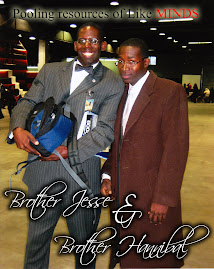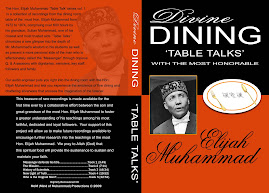
“The Black Male Perspective on Intimacy”
By: Ebony S. Muhammad, Certified Thanatologist
How did you get started with this research study?
It initially began while I was taking my Research Methods course, I am in the process of completing my Masters degree, and I had to choose a research study to deconstruct. I chose an article entitled, “The Male Perception of Intimacy”, by a few students at
I took it upon myself to conduct a research study on Black men, here in American, and of various backgrounds including religious and spiritual beliefs. I wanted to focus on the Black male because they have such a potent and unique history in this country which has contributed to their practice, experience, and view of intimacy as it pertains to a male: female relationship. No one can deny that slavery has taken a major toll on the Black man and woman and how we relate to one another especially in interpersonal and intimate relationships. Even in social settings, there is a tone of friction and animosity that someone from another culture or ethnic background would find puzzling.
I successfully interviewed 14 Black men from single and double-parent households, with various relationship statuses (married, divorced, single, engaged), with different religious and spiritual backgrounds (Muslim-Nation of Islam, Christian, Moorish Science Temple, Nation of Gods & Earths), and with a vast array of experience within male:female relationships. Each gave their own definition of intimacy; they shared how they believe society influences or once influenced their view, and what they each need in order to feel safe with a woman enough to open up.
What wa s your purpose in accomplishing this study?
s your purpose in accomplishing this study?
I wanted to get to the root of why intimacy, true intimacy, is such a scarce practice among Black people. I chose to study the Black male to challenge the stigma and misconception that men don’t feel and are not sensitive to relationships in the healthy sense. I wasn’t looking to prove or disprove the stereotype that most women place on men. I wanted to find out WHY those stereotypes even exist. I wanted to accurately display the Black male experience or lack thereof regarding intimacy from childhood to adulthood, and I explored the lingering effects of slavery as well. I sought to exhibit what Black men deem as important to them and what needs they have regarding relationships with Black woman and how that is being communicated or achieved. My ultimate purpose was to find and report the truth.
One of the major lessons I learned is that men are much more compassionate and patient than what is being portrayed in the media and in society’s voice of what the Black man represents. These 14 brothers were so articulate and passionate in their expression as if they were longing for the opportunity to be heard. They displayed a level of emotion and sensitivity that I can recall thinking, “Will anyone believe me when I report what I am hearing”? It was such a profound and enlightening experience for me as a Black woman to be allowed into the minds of all of these brothers, who are in most cases still recovering from past experiences that were painful. I learned to appreciate the differences in how men express their emotions, which if one pays close attention, one will witness the emotions of men expressed on a daily basis. I have always been a little sister to the big brothers in my life and got a little bit of the “inside scoop”, but these brothers took me to another level of Black love and appreciation for them. There is most certainly a misunderstanding due to miscommunication among both the Black man and woman in America.
What are some  different statements that were said?
different statements that were said?
When these brothers were asked to give their definition of intimacy and what comes to mind, this is what was conveyed, “Love and the action of showing someone love, caring, connecting emotionally and physically”, was one level of intimacy that was expressed. Others expressed, “Communication on a deeper and more personal level outside of a social atmosphere, and to make your mate feel wanted and needed as to project love more so than lust”, “Intimacy is to be compassionate”, “It means building a strong friendship by eliminating intimidation”, “Intimacy is sharing oneself spiritually, intellectually and physically. It is developing the nurturing nature of a relationship”, “Intimacy is the mental stimulation of the man and woman together; the thing that takes place before the bedroom action”, “The ability of a man and woman to elevate one another beyond sex”, “Trust, openness, honesty, and vulnerability”, “When you and your mate share a closeness that is unique to any other relationship”, and “When one’s soul is being satisfied”.
When they were asked about how society defines intimacy as it relates to masculinity, they responded that society defines intimacy as being “weak” and that men are not suppose to “feel”. These brothers also stated that society promotes masculinity in only the sexual sense. They stated that society sabotages relationships by emasculating the Black man and degrading the Black woman to be a sexual tool.
When they were asked about their past relationships that didn’t go well and the anxieties that they may have as a result, they stated that they need to feel as sense of safety and loyalty. They stated that their devotion to women is earned through her patience and understanding of him as a Black man and not what the world believes he is or should be.
An ything else you want to add?
ything else you want to add?
For the record I would like to say that I only knew a few of these brothers personally in terms of being around them on a weekly basis. However, the majority of the participants lived in other cities and states, and I didn’t know them. A few of the participants responded to an update I posted online and volunteered to be a part of this study. These men were not hand-picked, nor did I exclude willing participants to project an illusion of “good men”…they are a reality. These results are authentic and rich with wisdom and guidance for not only Black women but for Black men all over who may feel unsure about what it means to be a Black man here in America. I pray that they too not join with the world in rejecting such Godly attributes, but that they now feel encouraged to embrace the side of themselves that is ultimately the Source of their Power.











































No comments:
Post a Comment